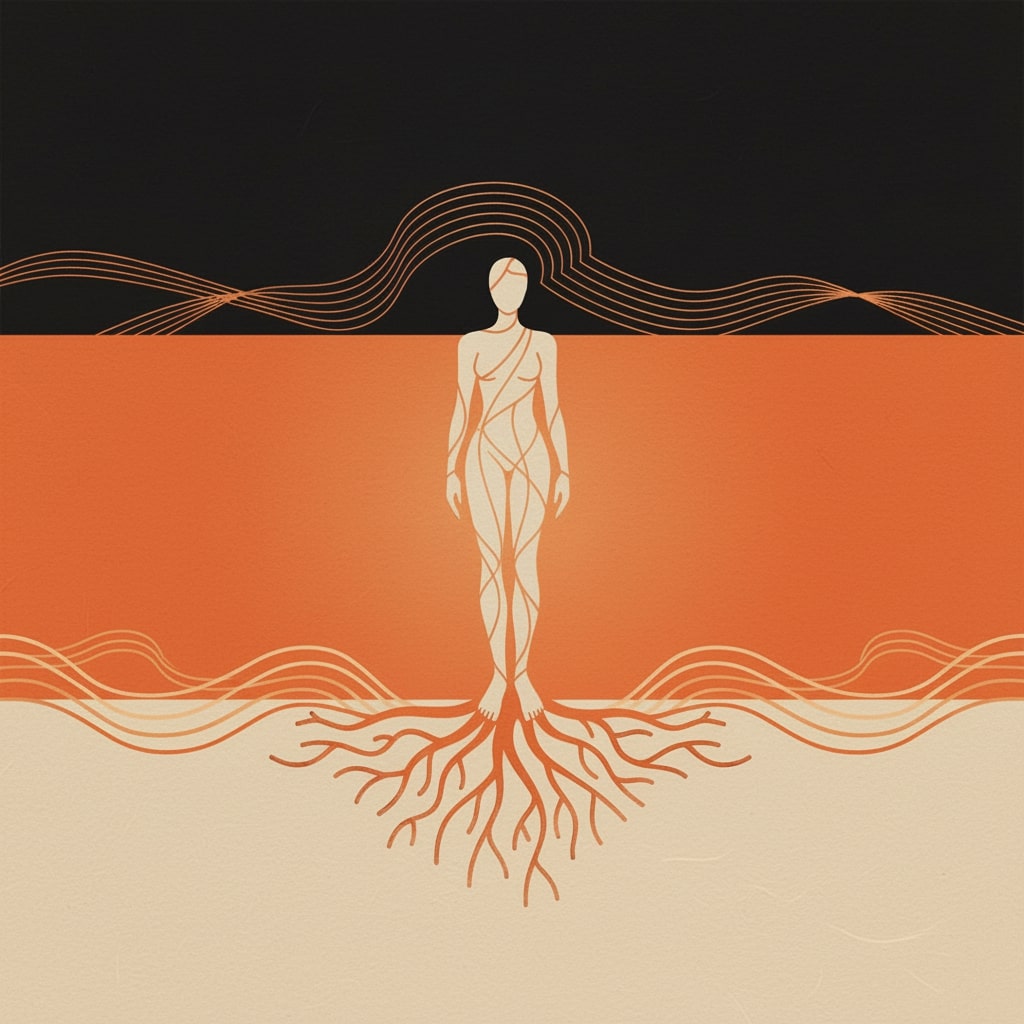Earthing (Grounding)

Earthing, also known as grounding, is the practice of making direct contact with the Earth’s surface. This can be done by walking barefoot on grass, soil or sand, or by using special grounding equipment indoors. The idea is that the Earth's natural electrical charge can help balance the body and support overall wellbeing [1][2].
What is earthing?
Earthing or the 'earthing hypothesis' is based on the belief that the Earth's surface carries a mild negative electric charge [3]. When people make physical contact with it, this charge is thought to transfer to the body, helping to neutralise positive electrical charges that can build up through daily exposure to electronic devices, pollution and artificial materials [4][5].
Supporters of earthing suggest that this natural exchange of electrons may help reduce inflammation [6], improve sleep and promote relaxation [7][8]. Although research in this area is still developing, many people report feeling calmer and more refreshed after spending time connected to nature [9][10][11].
How to practise earthing
Practising earthing is simple and can be part of a healthy lifestyle [12]. Common ways to do it include:
| Ways to practice Earthing (grounding) | How to do it |
| Walking barefoot outdoors | Walk on on grass, soil, sand, water, or even stone surfaces (without shoes or socks on) |
| Sitting or lying on the ground | Enjoying contact with the Earth while relaxing or meditating. |
| Using grounding equipment | Use grounding mats, earthing sheets or bands designed to replicate the Earth’s electric charge when used indoors. |
Spending as little as 10 to 30 minutes outdoors can be beneficial for both physical and mental health [13][14], regardless of the scientific debate surrounding earthing’s electrical effects.
Possible health benefits of earthing
While more research is needed to confirm its effects, some early studies and user reports suggest that earthing may:
- Support relaxation and reduce feelings of stress
- Improve sleep quality
- Reduce inflammation and pain
- Encourage better circulation
- Boost overall mood and energy levels
These potential benefits often overlap with the well-known positive effects of spending time outdoors and being physically active in natural settings.
Is grounding scientifically proven?
The scientific evidence for earthing is still limited and mixed. While some small studies have suggested possible improvements in sleep, stress and inflammation markers, larger and more rigorous trials are needed. Many experts believe that the observed benefits could also come from spending time outside, being active or experiencing sunlight and fresh air rather than from electrical grounding itself.
Is earthing (grounding) safe?
Earthing is generally safe for most people, but it’s important to take basic precautions.
| Precautions to take when attempting earthing | Practical tips |
| Be conscious of where you are walking barefoot |
Avoid walking barefoot in areas where there may be sharp objects, animal waste or chemical residues. |
| Choose reputable grounding / earthing products | When using grounding equipment, choose reputable products that meet safety standards. |
Nutritionist's Corner: Final Thoughts
“Earthing encourages people to spend more time outdoors, which naturally supports better mental health, vitamin D levels and physical wellbeing. While the scientific evidence behind electrical grounding is still emerging, the simple act of reconnecting with nature can have real benefits. Think of it as a mindful way to slow down and recharge in our busy, screen-filled world.”
– Yusra Serdaroglu Aydin, MSc RD
Sources
[2] Wendy Menigoz, Tracy T. Latz, Robin A. Ely, Cimone Kamei, Gregory Melvin, Drew Sinatra, Integrative and lifestyle medicine strategies should include Earthing (grounding): Review of research evidence and clinical observations, EXPLORE, Volume 16, Issue 3, 2020, Pages 152-160, ISSN 1550-8307, https://doi.org/10.1016/j
[3] Hyun-Jung Park, Gyeong Ran Lee, Yongsuk Kim, Jiyoun Kim, Mira Sohn, So Hee Kim, Sung Ja Rhie, Kyu-Ri Kim, Insop Shim, A randomized, double-blind, placebo-controlled study on the improvement of sleep quality with Earthing mat, Advances in Integrative Medicine, Volume 12, Issue 3, 2025, 100458, ISSN 2212-9588, https://doi.org/10.1016/j
Author

Yusra Serdaroglu Aydin, MSc RD
Head of Nutrition and Registered Dietitian
Yusra is a registered dietitian with a multidisciplinary background in nutrition, food engineering, and culinary arts. During her education, her curio...